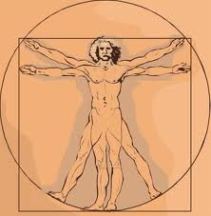
At the height of the Cold War predicting the future become serious business. A nuclear World War III was a real possibility and a literally cold and dark planet awash in radioactive ash a likely prospect. But communism wasn’t the only threat to the free world. Ideology aside, consumerism coupled with energy shortages and population growth provided good reason for questioning the very sustainability of our civilization. Ironically, communist propaganda pointed precisely to greed as capitalism’s Achilles heel.
So it isn’t surprising that by the 1970’s two schools of thought were already embarking on predicting the future. Since I have not come across this type of distinction between “futurists” in literature, I will proceed to describe it here. It is worth noting that by “distinction” I don’t mean opposition since both schools of thought can be regarded as members of the larger umbrella of systems thinkers.
First let’s loosely define the “engineers”, or better said, the engineering school of thought. Engineering had proven successful in World War II for a number of inventions, including rocket control systems. While Wernher Von Braun was working hard on getting us to the Moon, geniuses of the likes of Jay Forrester and Stafford Beer saw other uses for rocket control theory. Namely they had the insight to apply engineering thinking, particularly the mechanism of feedback, to social systems. This resulted, respectively, in the birth of two entirely new disciplines: system dynamics and management cybernetics. In parallel, Mihajlo Mesarovic, also an engineer emeritus with whom I’ve had the privilege of taking a graduate course at Case Western Reserve University, was also working on an elaborate mathematical model to predict the future state of the world. The Club of Rome, a new organization with an interest in humanity’s fate, saw the opportunity for these new methods to lend a degree of rigorousness to their own predictions about humanity’s long term future. This resulted in several publications in the early 1970’s. Limits to Growth and Mankind at the Turning Point received widespread attention since they discussed the “predicament of mankind”. The underlying belief of the engineering school of thought was that given a sophisticated enough computer model, the future could be more of less “mathematically” derived. Perhaps not surprisingly The Limits to Growth report was first introduced at a symposium in St. Gallen Switzerland, which remains a powerhouse for management cybernetics – Fredmund Malik and his consultancy continuing to this day the work started by Stafford Beer. In essence Limits to Growth painted a pessimistic view for the world future where shortages were likely to stop and even revert human progress. Simply put, the Club of Rome’s prediction for the early 21st century, largely based in engineering thinking, spelled disaster.
At about the same time, a number of futurists emerged from the direction of the social sciences. Peter Drucker, Alvin Toffler, Charles Handy and others were by no means engineers and were not using models, at least not in the quantitative sense; however, this did not discourage them from looking into the future. The term that Peter Drucker eventually chose to describe himself, “social ecologist”, captures well this entire breed of futurists. What these futurists were is astute observers of the human condition and social ecology, the same “tools” employed by the ancient Greek philosophers whose insights still form the basis of western culture. Drucker and his peers did not use quantitative methods but made predictions derived from qualitative insights at the intersection of human psychology, technology and social constructs. Many of those predictions are still relevant today while predictions presented by the engineering school of thought had to be dismissed or significantly adjusted. In all fairness, in the Club of Rome’s 2012 update to the Limits to Growth, “2052 – A Global Forecast for the Next Forty Years”, they have moved considerably away from hard quantifiable predictions. They have also moved in the direction of the social, describing their latest work as “educated guesses, combining data, modelling and hard science with an understanding of human nature and its systems and intuitions”.
Per this latest evidence, the two schools of thought can be said to be converging. Perhaps the best insight to be derived from the distinction presented in this piece is that we have much work to do in reconciling natural and social sciences. Until we do, and possibly even after, predicting the future will remain messy business. Elliott Jaques and Ilya Prigogine come to mind as two exponents of the social and respectively natural sciences that have made significant strides in reducing the divide between the two paradigms. I have always said that the universe preceded humans and so, the fact that we glean it through the reductionist lens of separate sciences suits our own convenience more than cosmological reality.
What about our ability to predict the future? Is it a legitimate undertaking or modern alchemy? Is the future clearly discernible through the lens of an all encompassing computer model, or does Lorenz’s and Feingenbaum’s Chaos Theory with its Butterfly Effect render any attempt at prediction hopeless? I would dare say that the work of Drucker, Toffler, and Handy among others has addressed both assertions: exact predictions of the future based in quantitative methods is indeed a hopeless undertaking, but a broad, nonspecific peak at the future is possible through the lens of qualitative thinking anchored in the constancy of human nature. But here’s the catch: only a select few appear to have the capacity for this type of undertaking, and they certainly aren’t employing a repeatable process or “best practice” in doing so. For the time being it appears that staring into the future is more art and science.








_01.jpg)

